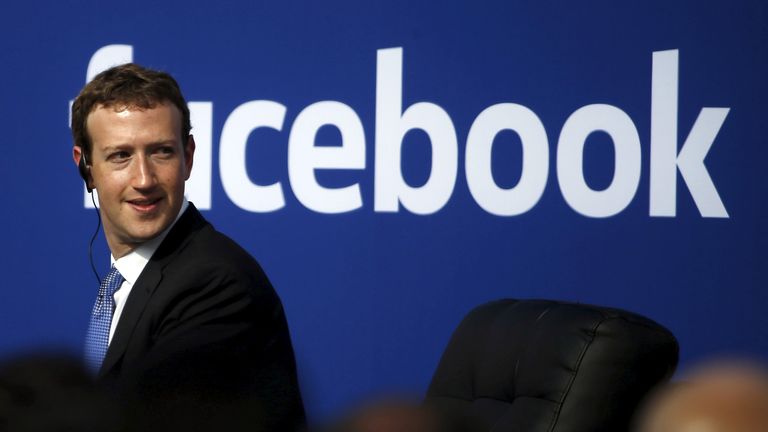Facebook urged to disclose how it collected data on 'insecure' youth
Mark Zuckerberg is sent a letter demanding he explain how Facebook targets young people feeling "worthless" and "insecure".
Wednesday 10 May 2017 19:02, UK
Facebook boss Mark Zuckerberg has been urged to disclose in full how his company allows advertisers to target young people.
A letter has been sent to Mr Zuckerberg from 25 international organisations, including children's charities and privacy groups, following the publication of an internal Facebook document earlier this month which revealed the firm's tactics for targeting young people.
The 23-page document, which was reported on but not published in full by The Australian, reproduced research that Facebook had presented to an advertiser about how it can tell if users are feeling "worthless" and "insecure".
It revealed that the company collected sensitive data on young users' emotions and "mood shifts" and allowed advertisers to "target them at their most vulnerable", according to the report.
At the time, Facebook apologised for the 23-page document. It told The Australian that it had opened an investigation into it and "admitted it was wrong to target young children in this way".
Now a coalition of non-governmental organisations have to complain about its response to the report.
The coalition's joint letter claims: "Facebook's statement on the matter does not resolve issues of concern about the commissioned analysis, its purpose and what it says about Facebook's actual advertising practices."
The groups state that they are concerned about how this information may be used by marketers and others to "take advantage of young people's emotions", and to do so without their knowledge.
"What began as a way for college students to keep in touch has morphed into a platform for brand-saturated marketing and psychological manipulation," said Kristen Strader, of the Public Citizen's Commercial Alert campaign.
Facebook was previously criticised in 2014 after to affect users' moods.
Jim Killock, the executive director of UK-based Open Rights Group, said: "We need more transparency about supposed research projects that are used to create valuable insights, which can be sold to the highest bidder.
"This is exploiting children and young people, who may not be aware of how Facebook are using and selling their data."



